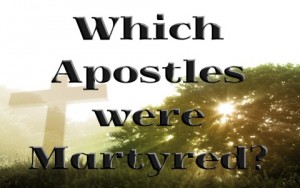
And third, through persevering prayer, as the Apostle Paul teaches. “He who eats My flesh and drinks My blood abides in Me, and I in him” (John 6:56) “unless you eat the flesh of the Son of Man and drink His blood, you have no life in you” (John 6: 53). Second, through the communion of the holy mysteries of the body and blood of Christ, through which Christ the Lord abides. And he who loves Me will be loved by My Father, and I will love him and manifest Myself to him" (John 14: 21). Christ himself tells us, "He who has My commandments and keeps them, it is he who loves Me. First, there is the following of God's will, that is, the commandments. Our hope is based on the sovereign grace of God, since it was given through Christ, as Scripture says, "For the law was given by Moses, but grace and truth came through Jesus Christ" (John 1:17).But we also have our part to play. Our Lord Himself teaches, "And whatever you ask in My name, that I will do, that the Father may be glorified in the Son”" (John 14:13).

We receive and will receive everything through him. As the Apostle Paul says, "…by the commandment of God our Savior, and the Lord Jesus Christ, our hope" (1 Tim. His position resembles that of the Archbishop of Canterbury in the worldwide Anglican Communion. But he does not have the right, for example, to interfere in the internal affairs of other churches. The Patriarch of Constantinople is known as the “Ecumenical” (or universal) Patriarch, and since the schism has enjoyed a position of honor among the Orthodox communities. Each group is governed by synods (councils of bishops) who have equal authority and who do not interfere in one another’s affairs. It is organized into “jurisdictions” following national and historic lines, based on the early Church model of conciliar church leadership seen in the Book of Acts (Chapter 15). The Orthodox Church does not have a single leader. The Eastern churches consistently rejected this encroachment for 1,000 years of Christian history, and continue to do so today. largely over the issue of the encroaching authority of the Roman Pope in the Western church. The Roman Catholic Church tragically broke from the Eastern churches in 1054 A.D.

The overwhelming majority of the bishops present at those councils were Eastern as well.

The East was the site for all the Ecumenical Church Councils (that is, the first seven, from 325 to 787 A.D.) which formulated doctrines which Christians of all orthodox traditions accept as normative. Their perspectives of interpretation still influence much of our understanding of the Scriptures today.

The first schools of Biblical interpretation, Antioch and Alexandria, were in the East. For over 1,000 years, with the exception of Rome, all the major centers of Christian belief were found in the East – in Jerusalem, Alexandria, Antioch and Constantinople.Īll the fundamental dogmas regarding the faith were formulated and defended in the East – essential dogmas like Christ being “of the same essence” with the Father that Christ is fully God and fully human that the Holy Spirit is a divine Person and the nature of the Trinity. The West was not a center of the early Christian movement – it was the “mission field”. It was from the East (not from Rome) that the apostles and Paul were sent out with the Gospel. The apostles founded the majority of Churches in the Eastern world (and only two in the West). The “headquarters” of the ancient Christian faith was in fact not Rome but in the Eastern world.


 0 kommentar(er)
0 kommentar(er)
